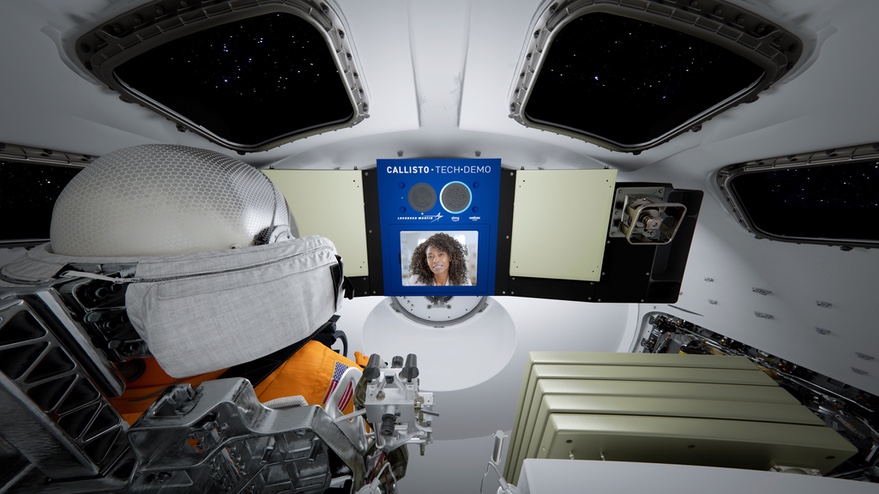WASHINGTON — The upcoming uncrewed test flight of the Orion spacecraft will include a payload to see how a voice recognition technology widely available to consumers today could be used to assist astronauts on future missions.
Lockheed Martin announced Jan. 5 that it has been working with Amazon and Cisco on a project called Callisto that will be flown on the Artemis 1 mission launching no earlier than March. Callisto is a demonstration to see how Amazon’s Alexa technology and Cisco’s Webex teleconferencing platform could be used on future crewed missions.
Callisto would allow astronauts to use voice commands to access data, adjust spacecraft controls and interact with teams on the ground. “We want to show that this type of technology can help astronauts with some of those unique human interface technologies, making their jobs simpler, safer, more efficient,” said Rob Chambers, director of commercial civil space strategy at Lockheed Martin, in an interview.
One application of the system would be for astronauts to ask Callisto to access and analyze spacecraft telemetry. “We’re drowning in data and starving for information,” he said. “One way you’ll be able to do this with the Callisto payload is to say, ‘Alexa, what is the average temperature across all the batteries, and what is the peak temperature?’ It’ll perform that data processing for you.”
Callisto can also control lighting and displays inside the spacecraft, or start diagnostic tests of spacecraft systems. With Webex, the system can exchange data and support collaborations like “whiteboarding” with teams on the ground. “These would be invaluable tools if I was on board as an engineer trying to understand what might be working or not working well,” he said.
The system uses a version of the same Alexa technology available for consumers. “Our engineers have done a bunch of incredible work with the teams at Lockheed Martin and Cisco to ensure that Alexa can work well in this very challenging environment,” said Aaron Rubenson, vice president of Amazon Alexa. That includes limited internet access available on Orion and the different acoustics of the capsule’s interior.
Rubenson said Callisto is programmed to respond to thousands of phases or “utterances” that it can process locally. It will determine if it can handle the queries itself or needs to transmit them to the ground.
The companies have tested Callisto extensively in simulators and are confident it’s ready to fly in space. “There’s nothing like real life where you have to conduct the switching that needs to happen, and deal with the latency and the packet loss,” said Jeetu Patel, executive vice president and general manager of security and collaboration at Cisco. “There’s nothing that can substitute that.”
Callisto was developed by the companies using their own funding. Chambers said Lockheed signed a reimbursable Space Act Agreement with NASA in late 2018 to support testing and inclusion of the technology on Artemis 1, paying for all the costs associated with that work.
Since Artemis 1 is an uncrewed mission, there will be no one on board to speak to Callisto. Chambers said “virtual crew members” in a backroom of mission control will issue commands to Callisto, with a variety of cameras inside Orion monitoring that work.
There are no plans for now, he added, to use Callisto on future Artemis missions or other spacecraft, pending how well the technology works on Artemis 1. “This is all about testing it on this flight, seeing if it’s valuable, and then we can assess how it can be used as we move forward not just on Orion but on habitats, at Gateway, rovers, and any number of other applications we’re actively looking at.”
Using Alexa in space would, in some respects, bring the technology full circle. Rubenson said that Amazon’s development of Alexa was inspired by the computers on the “Star Trek” television series, which responded to voice commands from the starship’s crew.
“We envision a future where astronauts can turn to an onboard AI for information, for assistance in doing their jobs in simpler and more efficient ways, and also, ultimately, for companionship,” he said. “Callisto is an opportunity for us to test that theory and explore how voice technology and AI can be helpful and potentially help support future crewed missions.”
